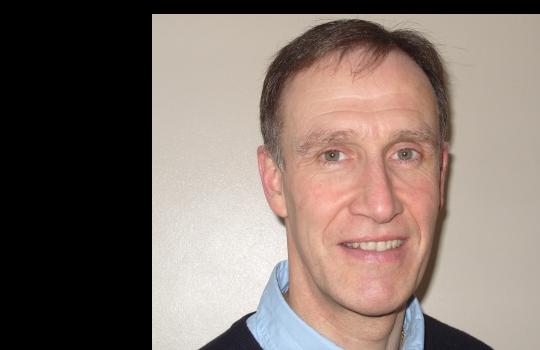For Tim Hadfield, co-founder of engagement specialists Inaccord Engagement Partnership, there’s no mystery surrounding engagement, it’s simply common sense.
But that doesn’t mean companies don’t need his help to get it right. “The big challenge is, managers know about engagement, but knowing it and doing it are two different things,” he observes.
And that’s where Hadfield comes in. He has decades of experience in customer and employee engagement that he is now sharing with companies which need help to see what is going on under their noses. “It’s like the phrase ‘a fish can’t see the water it’s swimming in’,” he says. “I can go into an organisation and in a relatively short space of time work out what’s going on. Then you see the penny dropping with people, but when you’re so close to it, you stop seeing it.”
Hadfield discovered an interest in this area in 1980, long before the word engagement became an HR catchphrase, when he was on the graduate recruitment scheme at Nationwide Building Society. It was a great training programme, but at five years, it was also incredibly long. He also found the career ladder at Nationwide very regimented: you started as a manager of a small branch, then a bigger one and finally a large branch, moving around the country each time.
Leftfield
This peripatetic existence didn’t appeal to Hadfield, so he left Nationwide to move nearer family and do something completely leftfield: buying a franchise in a central heating business with his two elder brothers – an industry none of them had any experience in. While his brothers kept their day jobs, he ran the business full time. It gave him a very different perspective on work: “Things like profit and loss suddenly became real – it really brought it home,” he says.
The business was ticking over nicely, but Hadfield felt that either his brothers needed to fully commit to the company and give up their day jobs or they should get out of the market altogether. They chose the latter course, but Hadfield is proud that the business had made a profit.
Financial services beckoned once more. “It was what I knew and where my my skills were best suited,” Hadfield explains.
He wanted to stay near the Midlands, so in 1986, he got a job at Birmingham Midshires and ended up as a branch manager in a district of Stoke-on-Trent. He became involved in a strategic branch review and made the recommendation to close his own branch. “People thought I was daft,” he remembers.
It was the late 1980s, the company was not in the best of shape and there was a redundancy package on the table if he wanted it. But, instead, the chief executive invited him to come to head office and fill a new position as an underwriting manager. Overnight, the company went from 120 to just three people who could sign off on mortgages. Not surprisingly a few noses were out of joint and Hadfield remembers it as “extremely uncomfortable” . Managers would ring him up and berate him for not giving out mortgages that they would have approved. Which was exactly the point. The company needed better control over its mortgage decisions.
But after four years as an underwriting manager and another two as a lending manager, Hadfield felt he was in danger of being pigeon-hole. So, he forged a new role as head of customer focus, responsible for the collection of customer feedback, and just as importantly, ensuring that the feedback was acted upon.
Banking on the future
In 1999, he moved back into operational management as operations director at Verso, an intermediary lending subsidiary of Britannia Building Society. The company had: “launched in fanfare, and then fell over spectacularly because of the volume of business,” he remembers. The service was plagued by backlogs and service problems and the guy he replaced had left due to stress, but he says: “I was up for a challenge.”
In the end it proved straightforward task. He split the department in two: half dealt with the backlog and half dealt with new business. In a couple of months things were back on track and customer trust was on the road to recovery.
From there he moved into Britannia Building Society where he led delivery of its customer experience programme. This was designed to evoke certain feelings such as ‘peace of mind’, ‘special’ and ‘valued’ in customers in every interaction with the organisation.
“It was very clear that Britannia’s people were absolutely key to the delivery
of these feelings and as a result I moved to a role as head of culture and
employee engagement, responsible for evolving the culture of the organisation
to support delivery of the business strategy and for engaging people with it,” he explains
His hard work was recognised when Britannia was ranked second best big company to work for in the UK in the prestigious Sunday Times Best Companies Awards in 2008.
“My approach has always been about creating relationships with customers and people who work for you,” he says.
One of the main things he learned at Britannia was that you needed to take a holistic view of engagement. “We could have stood up and talked to people and say how valued they are – and that did happen – but it would have meant nothing if reward and recognition suggested something else. Everything has to be aligned, otherwise employees see the discrepancies and will be cynical about it.”
Football crazy
Aside from work, Hadfield also had his own project going on with his other passion: Barnsley Football Club.
“My grandfather started to watch Barnsley in 1912, the year the Titanic sank. As a young boy I was taken to see Barnsley – the whole family supports the club, even though none of us live in Yorkshire.
“It was Boxing Day and the family was sitting round the dining table and then it struck me how much we talked about Barnsley and that our family had had relationship with Barnsley for almost 100 years.”
Hadfield felt inspired to write a book about his family’s relationship and history with the club. but he quickly realised that it needed to be much wider than his own family’s recollections. So he collected stories from other Barnsley fans and the book was launched at the football grounds. It made Hadfield a small profit, but that had never been the point. “It was about me paying tribute to my father and grandfather,” he says.
In the autumn of 2009, Britannia announced its intention to merge with Cooperative Financial Services. Hadfield led a cultural diagnostic for the two businesses and designed the cultural integration programme, but he felt that seeing it through would be simply a reprise of cultural changes he’d already implemented at Britannia. “Although the objectives were different, the plan for doing it would be the same. It felt a little bit like cranking the handle again on something I’d already done,” he says.
So, after supporting the organisation through the initial months of the merger, he left the company and set up on his own. Inaccord Engagement Partnership specialises in customer and employee engagement, though he puts the emphasis on customers. Setting up in the wake of a recession is the perfect time for companies to get stuck into engagement. “If it’s ever been important for organisations to truly connect with customers it’s now. If not, you’ll go the same way as Jessops and all the others. It’s all about customer engagement,” he says.
But that doesn’t mean he’s ignoring employee engagement. “For me, customer engagement is where you start and it’s easier to sell. Employee engagement is in some companies still has a reputation for being pink and fluffy and what business leaders are looking for is hard business results. I think the reason some people see it as pink and fluffy is the lack of clarity about employee engagement. If I ask a question: ‘what does engagement mean to you?- and the answer is we want our employees to be happy – for me that’s pink and fluffy. What they need is for people to be committed.”
He’s now working with a range of clients in the public and private sector on engagement, as well as blogging for HRzone. “I think the nature of engagement is changing. My view is it’s changed since the financial crisis of 2008 and will continue to change. In the past, people would have left a company if they are disengaged. But now there’s probably millions of employees disengaged, but aren’t in willing to consider leaving there. What you’ve got is a captive problem; people won’t leave until economy changes, therefore as a result I think it’s unhelpful to consider retention as a benefit of engagement. and it would be helpful for some organisations to have higher levels of turnover.”
Many companies get engagement wrong because they are don’t give people enough freedom, he believes. “You want people to step up and take responsibility but too many organisations see it as parent-child relationship – we will look after them, but then people don’t step up. When that happens it’s the organisation’s fault, because they create a culture that supports and maintains that way of working,” says Hadfield.
Q & A
Who do you admire most and why?
My father. He died in 1987 but remains an inspiration to me now. He had huge integrity and the courage to say what needed to be said without shying away from difficult issues. That may have been partly as a result of his Yorkshire upbringing, but unlike the stereotype he did so with sensitivity and grace – and it meant he was trusted.
I use the words sensitivity and grace deliberately – for me sensitivity is about caring how the message lands with the recipient and the key is to have a positive intent and grace is about communicating elegantly, effectively and with again with consideration for others.
What’s your least favourite buzzword?
“Risk Culture”, which has been used a lot when talking about the problems of the banking industry. I don’t like it because it suggests that “risk culture” exists independently from all the other factors which create an organisational culture. A more accurate description would be “An increased awareness and focus on risk within the organisational culture.”
What’s the best piece of advice you’ve ever received?
“Assume positive intent and always ask ‘What else could this mean’, when your first reaction is to be upset or angry about something someone has said.”
How do you relax?
I enjoy spending time with my wife and children. I also enjoy reading (although I don’t do it enough) and am an avid Barnsley FC supporter.





